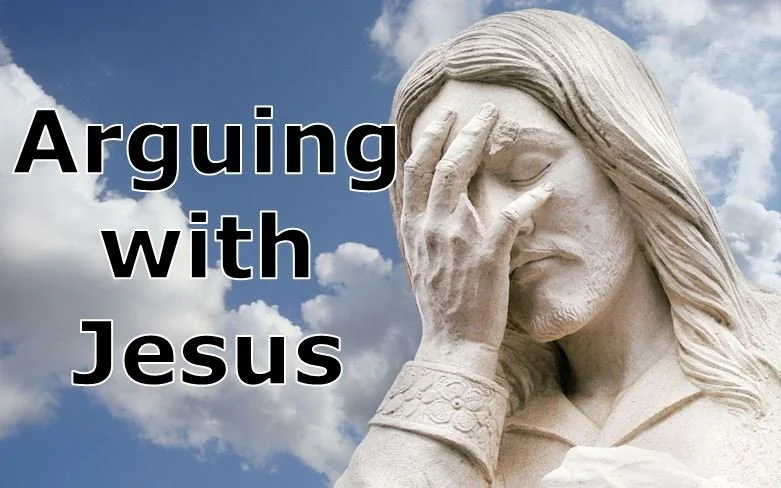In Matthew chapter 16 we see the high point of the Apostle Peter’s life. Jesus asked the disciples who people say that He is (v 13). The disciples gave some various theories as to what people were saying. Then Jesus asked them what they thought. Peter answered with one of the great confessions of all time, “You are the Christ, the Son of the Living God” (v 16). For this accurate statement of faith Jesus praises and compliments Peter, giving him high marks in front of the other disciples. No doubt this made Peter feel really good.
However, right after this account we see one of the lowest points of Peter’s life. The text tells us Jesus began to speak of His upcoming suffering, trial, murder, and resurrection (v 21). In fact, it says Jesus told them this ‘must’ happen. He was telling them of His sacrificial death for sinners that was inevitable and upcoming.
But Peter actually takes Jesus aside and rebukes Him (v 22)! So just imagine this moment: Peter pulls Jesus away from the crowd and begins arguing with Jesus. Peter tells Him, “God forbid it Lord, this shall never happen to you.” We all know what happens next. Jesus tells Peter, “Get behind Me Satan.” Ouch. From the high point to the low point.
But I find it very interesting that Peter was so confident in himself and what he thought he knew about God’s plans that he was even willing to correct Jesus, to argue with Jesus. I bet if you had asked Peter before this if he would ever argue with Jesus, he would probably say ‘no way!’ Yet, here he is doing that very thing.
Would you ever argue with Jesus? Most of us would quickly say we would never. But let me give you a few scenarios to challenge that assumption.
If Jesus revealed to you He was bringing a major trial and hardship upon your life that would last for a significant time, how would you respond? Would you say ‘Thy will be done Lord.’ Or would you protest such a plan?
If Jesus told you He was turning over your country to ungodly rulers who were going to install ungodly rules and laws where you live, how would you respond? Would you accept that or would you challenge His decision?
If you have a certain theological belief that you have had for a long time and are fairly confident in that position, yet you read verses in Scripture that confront that theological point and seem to prove it wrong, how would you respond? Would you abandon your long standing belief for what you have found to be true or would you just disregard that finding?
In each of these scenarios we can see ways that we could argue with Jesus. To protest the introduction of hardship in your life is to argue with Jesus. To challenge His decision about national rulers would be to argue with Jesus. To disregard Biblical truth that contradicts your previously held beliefs is to argue with Jesus. Maybe we are not all that different from Peter as we think?
Why would we ever dare argue with Jesus? Well the answer is in the text. Jesus tells Peter that he is setting his mind on man’s interests, not God’s interests (v 23). Peter put what he wanted to happen ahead of what God wanted to happen. Imagine if Peter got his way and Jesus never would have died for sinners. Even though Peter’s desire was a good desire (He didn’t want to see His Lord suffer), it was counter to God’s desire, and that made it wrong.
In our life often times we seek our own interests instead of God’s interests. We see with limited vision, we have limited knowledge, we have limited power, and we want to happen what we want to happen. When all the while God has unlimited vision, unlimited knowledge, and unlimited power, and we should want to happen what He wants to happen!
God always knows best. God’s will always should come first. We must be humble enough to accept, in faith, whatever the Lord’s will is for us. Maybe it is hardship, maybe it is humility, but I can know for sure He knows what is best.
At Easter this year we are grateful that Jesus did not listen to Peter’s passionate argument. We are grateful that Jesus went to that cross because it ‘must’ happen for our salvation. We are grateful that He rose and showed Peter, and us, how powerful He really is.

